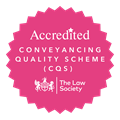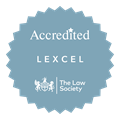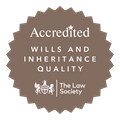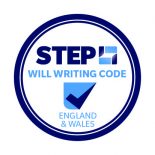With the recent changes to stamp duty, the property market has received a welcomed boost, which has resulted in us seeing a surge in property transactions.
The changes to stamp duty have also allowed for a large number of first time buyers to come into the market and purchase their first home.
To assist first time buyers in understanding how a property transaction works, we carried out an interview with Jonathan Bishop, who is one of our Partners who specialises in conveyancing.
What is conveyancing?
Conveyancing is the legal process in which the ownership of a property is transferred from one party to another, whether that is Seller to Buyer, or Landlord to Tenant.
Why do I need a lawyer to buy a property and what do they do throughout the whole process?
A lawyer is a qualified individual who is entitled to provide legal services. They will guide you from start to finish of a transaction, as well as carefully examine the legal paperwork and ensure the property has a good and marketable title for you to buy. A lawyer’s role does not finish on completion of the purchase. They will also deal with your stamp duty return and registration of your ownership at Land Registry.
When should I instruct a lawyer?
Once you have agreed a purchase with the Seller, usually through an estate agent. The estate agent will require details from both parties of their chosen lawyer so that sales memorandums can be issued and both party’s legal representatives can contact each other.
What is stamp duty and how much is it?
Stamp Duty is a government tax that is charged as a percentage of the purchase price of a property. The percentage is calculated on a tiered system. The amount charged also depends on whether you are a first-time buyer, buying a main residence or an additional property.
How long does it usually take from start to finish and what are the stages?
There is no set time period, as timings depend on the merits of each transaction, as well as the speed in which all parties can move. As a rough rule of thumb and on the basis, everything proceeds as normal, an average time to exchange is 3/4 weeks from when the Buyer’s solicitor receives contract papers.
What is Land Registry and where does it fall into my transaction?
Land Registry is the body that records the ownership of registered land in England and Wales. At the start of the transaction we check the Seller’s ownership (“title”) at Land Registry and also what matters are registered against that title that would affect an owner’s use of the property and whether the seller has a good marketable title. Once the transaction completes, your lawyer sends the legal documentation to Land Registry, so that your ownership of the property is officially recorded with them.
How much are your fees?
There is no set fee that covers all transactions. Our fee is based on several factors, including the type of property purchased and the purchase price. Further details can be found on our website using the following link https://www.yvasolicitors.com/service/residential-property/
Are there any additional fees?
Yes, these are known as disbursements and include items such as your stamp duty, Land Registry fees and search fees.
What is a survey, and do you recommend I get one?
We always recommend you enquire with a surveyor about obtaining a survey and they will advise what type of survey is best suited for the property you are purchasing. The purchase of a property is a big investment and it is important to check there are no underlying issues that could be costly after you have completed.
What are searches and why do I need them?
The standard searches we obtain are a Local Search, an Environmental Search and a Drainage & Water search. Additional searches may be required, depending on what is revealed in these search results, as well as where the property is located. The searches are carried out to check whether any matters are recorded with third parties, such as the Local Authority, Water Company and Environment Agency, which may have a negative effect on the property or its value.
Are there any documents I need to sign and at what stage do I sign them?
The main documents are the contract and if you are obtaining a mortgage, the mortgage deed. The contract is the document that contains the key terms for the purchase and records a legally binding agreement between the Buyer and Seller in respect of the sale of a property. The mortgage deed is provided by your mortgage lender and is used to register what is known as a “legal charge” on your property. This protects the lender’s interest, including the funds they have lent you for the purchase and prevents a change in ownership of the property without repaying the mortgage loan.
What is the difference between exchange and completion?
Exchange is the date that both Seller and Buyer enter into a legally binding contract to buy and sell the property. It will also record the completion date. Completion is the date recorded in the contract, where the Buyer pays the balance purchase price to the Seller and in return the Seller transfers their ownership of the property to the Buyer.
What is the difference between freehold and leasehold property?
Freehold land is a permanent tenure of land. When you own a freehold, you will own both the property and the land it is built on. Leasehold land is not permanent ownership and is granted for a term of years to the leaseholder. As a leaseholder you will own the property for the term of your lease, subject to any extension of that lease. You will own a property in a building, but will have no ownership of the building in which it is in. A leasehold property will have a lease, which contains details of the term granted to the leaseholder, payments required to the freeholder, as well as covenants (a promise to do or not to do something) and regulations that must be observed by the leaseholder. As a general rule of thumb, the majority of houses are freehold and the majority of flats are leasehold.
Possession Proceedings – Unprecedented Changes (PD 55C)
The purpose of the changes is to take into account the effect of the pandemic on all parties maintaining confidence in fairness of outcomes, encouraging compromise and to ensure the defendants are provided with legal advice.
Current Restrictions
- Moratorium on forfeiture of business tenancies extended until 31 December 2020 and is further extended until 31 March 2021.
- In Commercial Rent Arrears Recovery proceedings (“CRAR”) the minimum unpaid rent must be equivalent to 276 days rent until 24 December 2020 and 366 days from 25 December 2020. The restriction on landlords using CRAR to recover unpaid rent will also automatically extend to the end of March, in line with the moratorium’s expiry date. This allows businesses sufficient breathing space to pay rent owed.
- PD 55C: Possession Proceedings
- Reactivation Notice required for stayed claims
- New notice requirements for new claims
Overall Arrangements
- Emphasis on compromise
- Legal advice and assistance for defendants
- Non-statutory best practice guidance:
– MHCLG guidance for private and social landlords and tenants
– NRLA Pre-Action Plan: Managing Arrears and avoiding possession claims
– FCA guidance ‘Mortgages and Coronavirus’ (to 31.7.2021)
– MHCLG Code of Practice for commercial property relationships during the Covid-19 pandemic (to 24.6.2021)
New Listing Priorities
- Court will no longer fix hearing dates when claim is issued
- No more block listing
- 21 days’ notice
- Cases will be given priority if they involve the following:
- Anti-Social behaviour allegations;
- Extreme rent arrears;
- Squatters or illegal occupiers and persons unknown;
- Fraud or Deception;
- Unlawful Subletting;
- Allegations of abandonment of the Property;
- Local authority temporary accommodation needed for reallocation
Covid-19 Case Marking
- Intended to highlight settlement suitability and assist the court in dealing with listing, case management and the exercise of discretion
- Any Defendant or private Claimant may request a case is marked
- Specified information required
- Upon making request must inform all other parties. Request will result in case marking unless objection raised
- Judge may also direct that a case is Covid-19 marked
Review and Substantive Hearing Dates
The Review (R) Date:
– a 5-minute non-attended appointment on the documents
– requirements of the claimant relating to bundles before R date
– requirement that claimant is available to discuss the case during the R date
– consequence of failure to resolve case on the R date
The Substantive (S) Hearing Date:
– a 15-minute hearing attended by all parties 28 days after the R Date
– a physical hearing unless the parties agree otherwise or contingency arrangements apply
– unless case resolved, a decision by the Court or further case management directions
– adjournment considered without application where advice not yet made available to Defendants and consequences of order ‘may be serious’
Accelerated Possession Claims
- As with existing rules, the court can still make a possession order without a hearing
- Reactivation notice requirements apply for stayed claims
- The same priorities apply as with normal cases in the order in which they will be dealt with
- Will be referred to judges “at a manageable frequency”
- Where the parties agree or there is no objection a review hearing can be ordered
Evictions
- 14 days’ notice of an eviction date required
- Indicated that applications for transfer to High Court will not be prioritised
- No execution of possession warrants or delivering notices of eviction between 17/11/2020 and 11/01/2021.
- The Public Health (Coronavirus)(Protection from Eviction and Taking Control of Goods)(England) Regulations 2020
- There will be no enforcement of possession orders “Where lockdown measures are in place to protect public health”
- No evictions over Christmas Period save for the most serious of cases
How will the arrangements work in Practice?
The key aims of the overall arrangements are to reduce volume in the system by enabling earlier advice and facilitating settlement. How well this works in Practice is yet to be seen. What we do know is that delays will be inevitable and Covid-19 Case Marking is likely to become the norm. In the circumstances, it appears the Accelerated possession claims may be the ‘Cinderella’ of the situation.
Possession Proceedings – Unprecedented Changes (PD 55C)
The purpose of the changes is to take into account the effect of the pandemic on all parties maintaining confidence in fairness of outcomes, encouraging compromise and to ensure the defendants are provided with legal advice.
Current Restrictions
- Moratorium on forfeiture of business tenancies extended until 31 December 2020 and is further extended until 31 March 2021.
- In Commercial Rent Arrears Recovery proceedings (“CRAR”) the minimum unpaid rent must be equivalent to 276 days rent until 24 December 2020 and 366 days from 25 December 2020. The restriction on landlords using CRAR to recover unpaid rent will also automatically extend to the end of March, in line with the moratorium’s expiry date. This allows businesses sufficient breathing space to pay rent owed.
- PD 55C: Possession Proceedings
- Reactivation Notice required for stayed claims
- New notice requirements for new claims
Overall Arrangements
- Emphasis on compromise
- Legal advice and assistance for defendants
- Non-statutory best practice guidance:
– MHCLG guidance for private and social landlords and tenants
– NRLA Pre-Action Plan: Managing Arrears and avoiding possession claims
– FCA guidance ‘Mortgages and Coronavirus’ (to 31.7.2021)
– MHCLG Code of Practice for commercial property relationships during the Covid-19 pandemic (to 24.6.2021)
New Listing Priorities
- Court will no longer fix hearing dates when claim is issued
- No more block listing
- 21 days’ notice
- Cases will be given priority if they involve the following:
- Anti-Social behaviour allegations;
- Extreme rent arrears;
- Squatters or illegal occupiers and persons unknown;
- Fraud or Deception;
- Unlawful Subletting;
- Allegations of abandonment of the Property;
- Local authority temporary accommodation needed for reallocation
Covid-19 Case Marking
- Intended to highlight settlement suitability and assist the court in dealing with listing, case management and the exercise of discretion
- Any Defendant or private Claimant may request a case is marked
- Specified information required
- Upon making request must inform all other parties. Request will result in case marking unless objection raised
- Judge may also direct that a case is Covid-19 marked
Review and Substantive Hearing Dates
The Review (R) Date:
– a 5-minute non-attended appointment on the documents
– requirements of the claimant relating to bundles before R date
– requirement that claimant is available to discuss the case during the R date
– consequence of failure to resolve case on the R date
The Substantive (S) Hearing Date:
– a 15-minute hearing attended by all parties 28 days after the R Date
– a physical hearing unless the parties agree otherwise or contingency arrangements apply
– unless case resolved, a decision by the Court or further case management directions
– adjournment considered without application where advice not yet made available to Defendants and consequences of order ‘may be serious’
Accelerated Possession Claims
- As with existing rules, the court can still make a possession order without a hearing
- Reactivation notice requirements apply for stayed claims
- The same priorities apply as with normal cases in the order in which they will be dealt with
- Will be referred to judges “at a manageable frequency”
- Where the parties agree or there is no objection a review hearing can be ordered
Evictions
- 14 days’ notice of an eviction date required
- Indicated that applications for transfer to High Court will not be prioritised
- No execution of possession warrants or delivering notices of eviction between 17/11/2020 and 11/01/2021.
- The Public Health (Coronavirus)(Protection from Eviction and Taking Control of Goods)(England) Regulations 2020
- There will be no enforcement of possession orders “Where lockdown measures are in place to protect public health”
- No evictions over Christmas Period save for the most serious of cases
How will the arrangements work in Practice?
The key aims of the overall arrangements are to reduce volume in the system by enabling earlier advice and facilitating settlement. How well this works in Practice is yet to be seen. What we do know is that delays will be inevitable and Covid-19 Case Marking is likely to become the norm. In the circumstances, it appears the Accelerated possession claims may be the ‘Cinderella’ of the situation.







